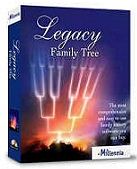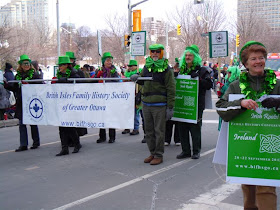Here's how February treated various favourite genealogy sites. Comparable figures are for a month ago. The higher the Alexa ranking the more popular the site.
The two DNA sites followed both climb, FTDNA reversing last Month's decline, 23andMe continues a rapid climb in ranking. QFHS.ca has overtaken BIFHSGO.ca.
Familysearch.org has 1,489 (1,430) record collections: census & lists 121 (120); birth, marriage, & death 911 (869); probate & court 132 (125); military 106 (103); migration & naturalization 80 (80); other 139 (133). It has Alexa rank 4,660 (4,908).
Ancestry.com has Alexa rank of 652 (667); ancestry.co.uk ranks 7,757 (7,498) and ancestry.ca 32,182 (33,316). There are 31,241 (30,815) datasets in the collections including 1,943 (1,941) for Canada, 1,704 (1,685) for the UK and, 25,064 (25,058) for the USA.
Findmypast.co.uk has an Alexa rank of 21,204 (21,769). Findmypast.com ranks 108,642 (100,687).
Family Tree DNA has 404,069 (402,224) records in its database. It ranks 30,605 (32,469) on Alexa. 23andMe ranks 20,483 (25,509).
GenealogyinTime.com ranks 37,212 (37,483); Mocavo.com has rank 78,847 (62,404)
Britishnewspaperarchive.co.uk contains 6,469,560 (6,346,980) digitized pages adding 4,378 (5,849) pages per day. There is a problem with the list of additions during the past 30 days which shows only the Hastings and St. Leonards Observer for 1912. Alexa rank 125,187 (122,294).
Cyndislist.com claims 326,552 (325,986) total links in 193 (192) categories, with 1,793 (1,796) uncategorized. Alexa rank 87,047 (81,220).
FreeBMD.org.uk has 226,280,181 (225,305,278) distinct records, Alexa rank 88,587 (82,087).
UKBMD.org.uk provides 2,446 (2,370) links to web sites that offer on-line transcriptions of UK births, marriages, deaths and censuses. Alexa rank 291,415 (276,462).
CanadianHeadstones.com has over 586,000 (568,000) gravestone photo records from across Canada. It scores 491,720 (548,577) in Alexa traffic rank.
The Canadian Gravemarker Gallery, with over 709,189 (700,500) photographs from across Canada, ranks 2,283,395 (1,915,268).
bifhsgo.ca ranks 2,247,578 (1,915,964), qfhs.ca ranks 1,864,093 (2,494,023), ogs.on.ca ranks 207,212 (191,509).
And in case you're curious, Anglo-Celtic Connections has 4,407 (4,327) posts and another precipitous decline in Alexa rank to 441,748 (320,216). Hopefully that means more readers are coming via the RSS feed which as I understand it is not included in the Alexa statistics.
Did I miss something significant? If so please post a comment with statistics if applicable.


.jpg)











